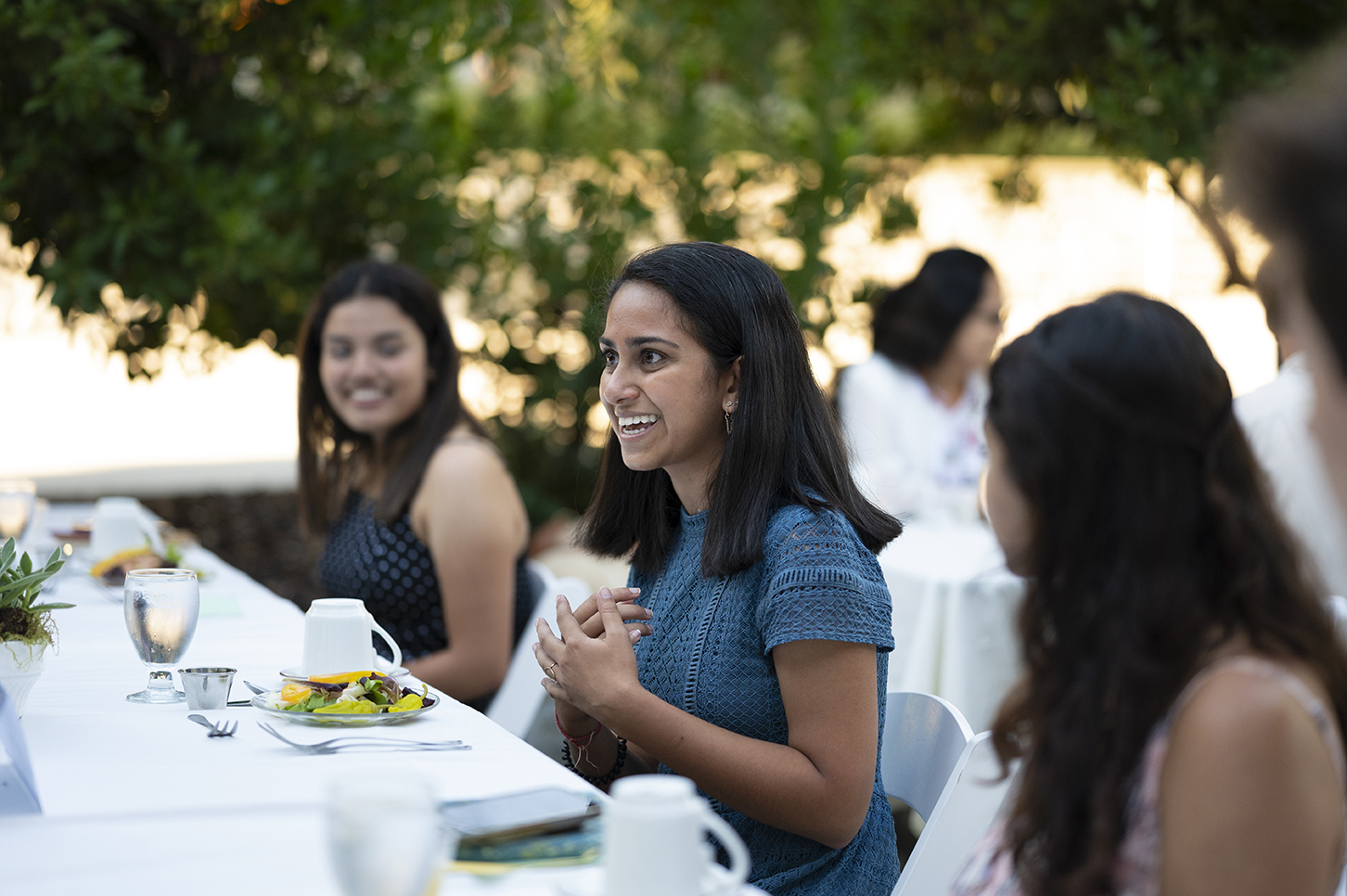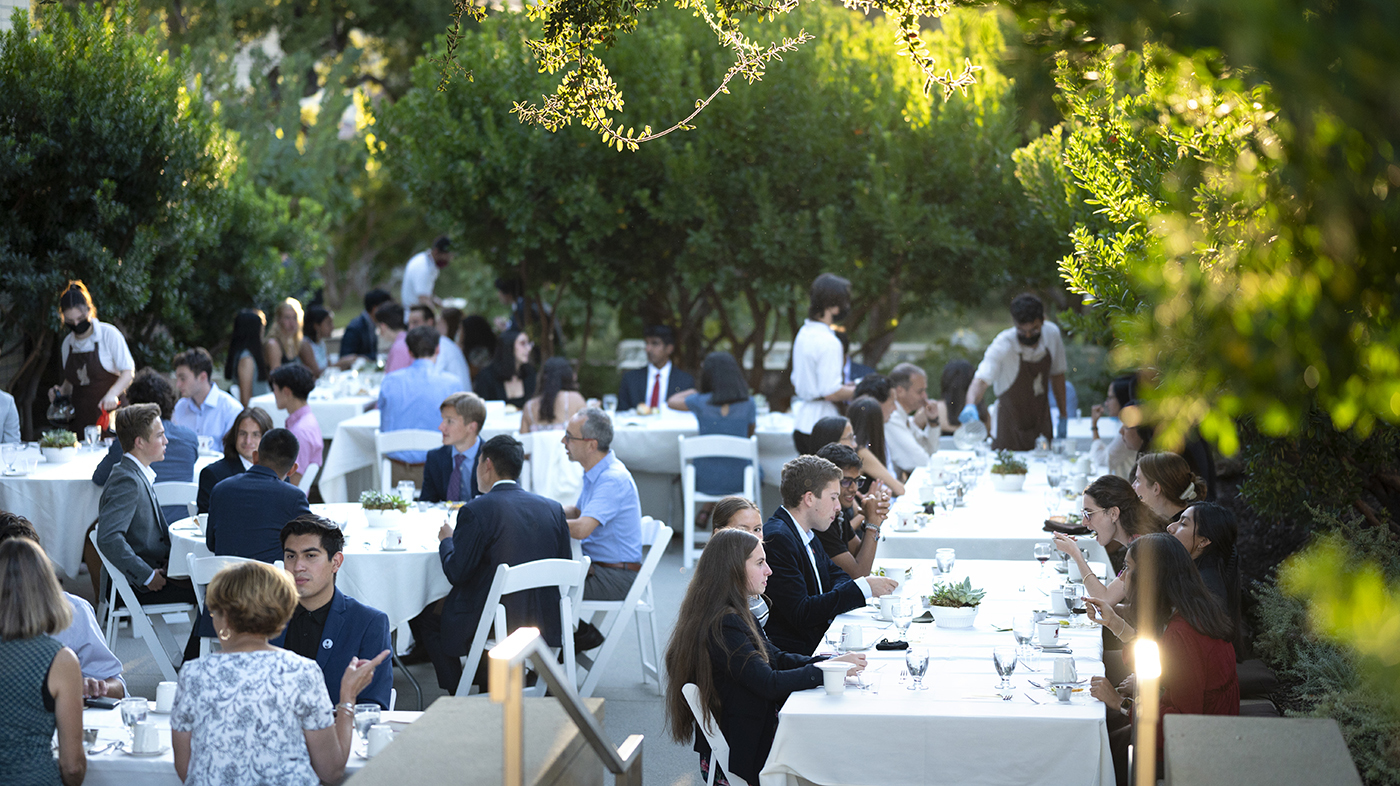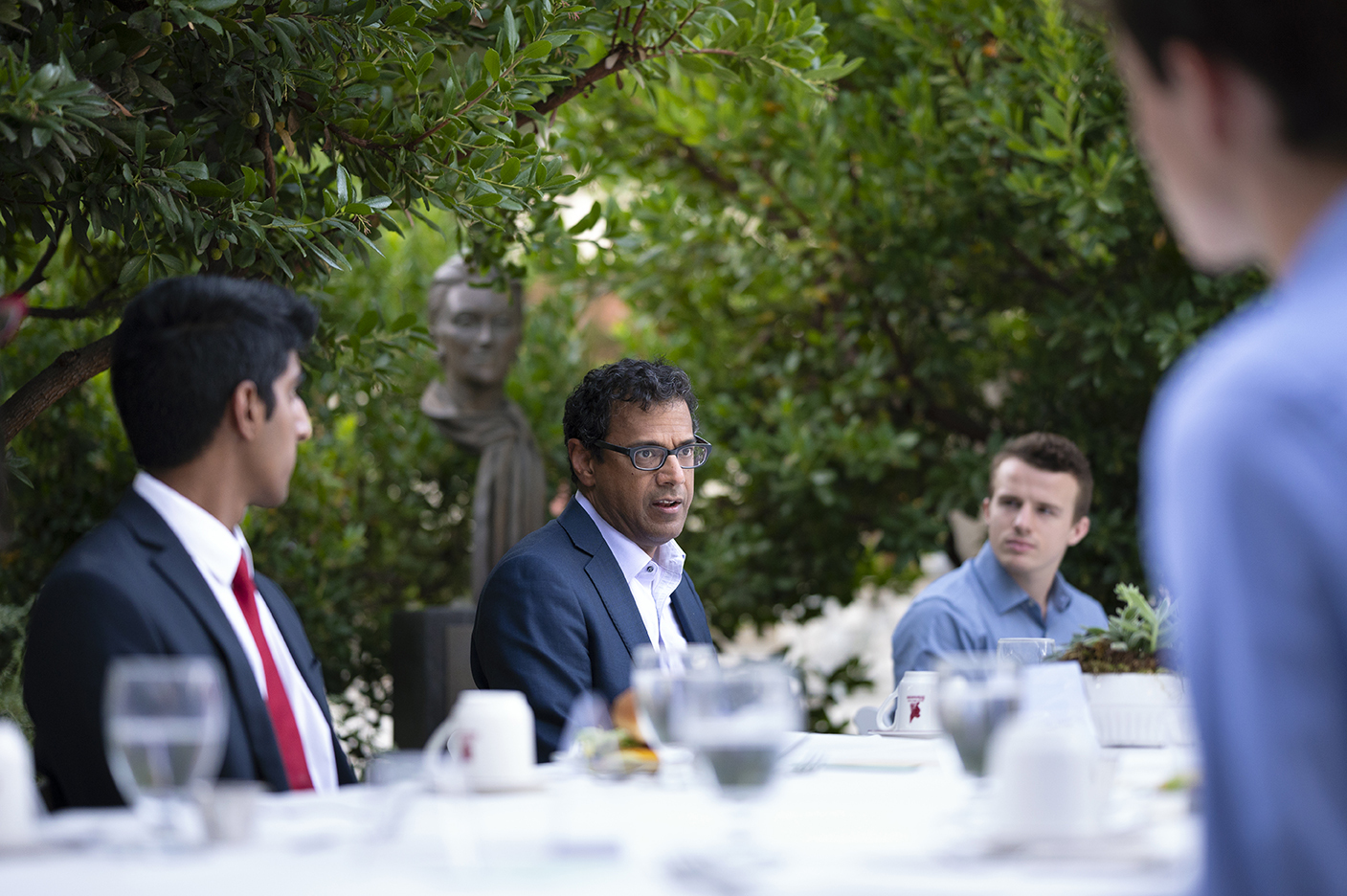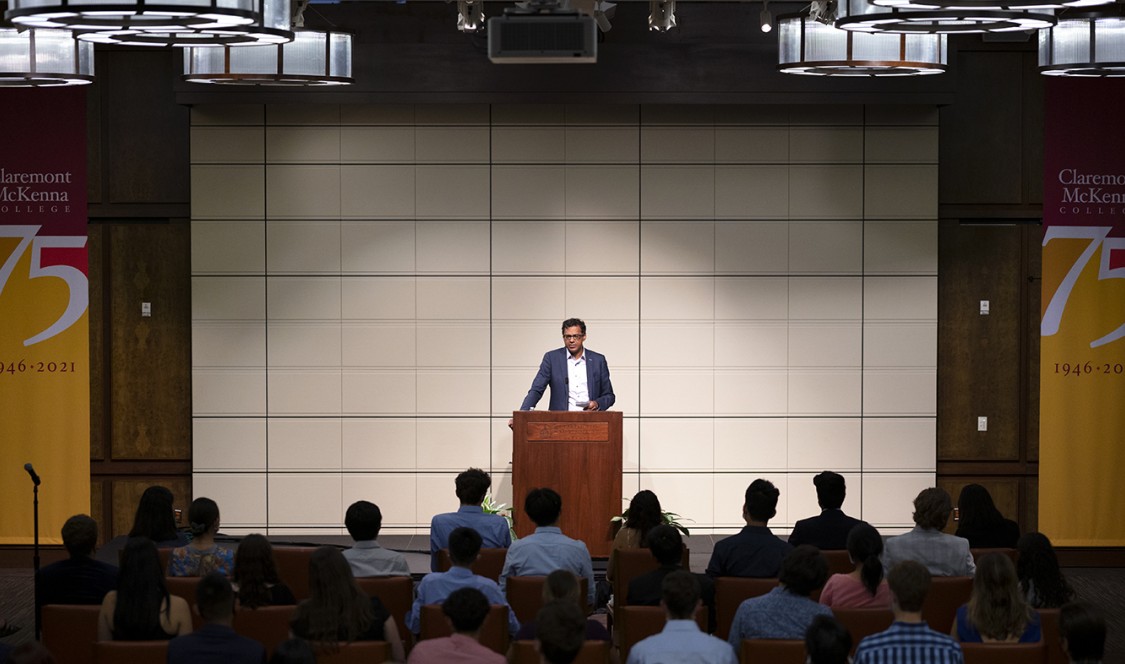“Welcome to the Marian Miner Cook Athenaeum and the first in-person event in a year and a half.”

Maya Ghosh ’22 may not have intended her podium introduction as a new Athenaeum fellow to be a raucous applause line. But there was something cathartic about the spontaneous reaction that animated the early moments of Dr. Atul Gawande’s opening night talk.
The same special energy greeted guests as they arrived for the 5:30 p.m. outdoor reception, wide smiles carrying through a bustling dinner service at two adjoining Ath patios. Students dressed for a nice evening out. Conversations between friends and strangers. Ath director Priya Junnar warmly making the rounds. CMC’s John Faranda ’79 explaining the rules of coffee and tea service to newcomers. All the familiar hallmarks were evident.
Welcome back to the Ath, CMC.
“When I applied here, the Athenaeum was one of the first things that I heard about. So, I felt really motivated to be here for not only my first time, but the first one back,” said Adrian Flynn ’25, who attended with fellow first-year Wally Bargeron ’25. “Honestly, it feels so special to be here, to finally be seeing what this Athenaeum thing is all about.”
Both Flynn and Bargeron got their books signed by Gawande after his talk and were a little awestruck by the practicing surgeon, public health researcher, and best-selling author—the first in an all-star lineup of 75th Anniversary Distinguished Speakers visiting the Ath this year. His presentation highlighted the core CMC anniversary theme of Science and Policy.
“He’s definitely a household name where I’m from,’ Bargeron said of Gawande, an endocrine surgeon at Brigham and Women’s Hospital in Boston and a professor at Harvard Medical School. “It’s amazing for him to be the first person I get to say I saw at the Ath.”

Similarly, Jasmin Joshi ’23 said she couldn’t have asked for a better re-introduction to Ath life than Gawande, whose book, “Being Mortal,” mirrored her own independent study on end-of-life issues as a sophomore. A neuroscience major who wants to become a physician, Joshi said Gawande fully embodies CMC values of open discourse and interdisciplinary liberal arts learning.
“What I love about the Ath is that you can come and hear what might seem like a niche topic, but they choose the kind of speakers who will apply their expertise to anything you want to do and learn more about,” Joshi said. “That not only helps me get excited about my future, but it feels fully reflective of where CMC students are at. We’re all about connecting our learning between science, politics, policy, economics, and innovation. And we love to talk about it.”
As for the showstopper of the evening, Gawande spoke about the need to go beyond breakthrough innovation and push further with follow-through innovation to solve complex problems in the world. He began by explaining how most problems are caused by ignorance (a limited understanding; what we don’t know) or ineptitude (a failure to execute on what we do know)—and how the pendulum may be swinging more toward the latter.
Driven by wanting to solve problems in medicine, especially those stemming from human error, Gawande devised a multi-point safe surgery checklist (covered in his book, “The Checklist Manifesto”) to be used in operating rooms around the world. Something as simple as making introductions as a team before surgery, he stated, could have a significant impact on fostering communication and cooperation at a hospital, thereby reducing mistakes.
“The biggest challenges, the biggest problems, the biggest reasons we have failures are not because we didn’t discover answers, but because we couldn’t execute,” Gawande said, later calling for less of a culture of lone cowboys and one with “more pit crews” working together toward a common goal.
Gawande also shared how applying strong leadership and accountability to all systems—whether to find solutions for education, climate change, the economy, or the current COVID-19 pandemic—often leads to more humility, discipline, and teamwork. It can also be the difference between solving “tame problems and wicked problems.”
A tame problem, he said, is how to build a bridge; the wicked problem, where to put it. While the wicked set of problems—with its inequities, trade-offs, and unanticipated complications—often leads to “messy work,” the resolve required of follow-through innovation can truly transform the world.

“Work on the problem of failures of execution, work on follow-through innovation, is always work on a wicked problem. Those problems will be amenable to systematic solutions. You will also have to engage in advocating for the values you want for those systems to serve,” Gawande said.
“That’s why I’m so grateful to be here at CMC, talking to you. You put value in scientific innovation and technical know-how. You also understand that you cannot achieve impact without innovation and how it fits into the world.”
Learn more about this year’s 75th Anniversary Distinguished Speaker Series and view the semester’s full Athenaeum schedule.

